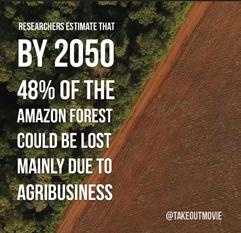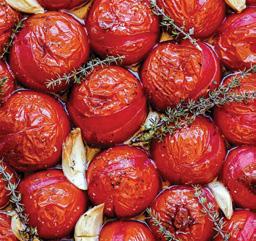
12 minute read
What is it and how can it shorten the length of your life?
But what about vitamin supplements?
Calcium supplements have “little place” in modern medical practice, say the authors of a research review published in the Medical Journal of Australia.
Advertisement
Professor Ian Reid and Associate Professor Mark Bolland, of the University of Auckland, reviewed the evidence of both efficacy and safety of calcium supplements, and vitamin D supplements.
“The use of calcium supplements in individuals without specific bone pathology does not have a sound evidence base, and the safety concerns suggest that the net effect could be negative,” they wrote.
Calcium supplements are frequently associated with gastrointestinal symptoms, particularly constipation, and they have also been reported to double the risk of hospital admissions related to abdominal symptoms.
“In the Women’s Health Initiative study, calcium and vitamin D increased the risk of renal calculi (kidney stones) by 17 per cent. There is evidence that calcium supplements increase the risk of myocardial infarction and, possibly, stroke, although this remains subject to controversy,” they wrote.
Vitamin D supplements rarely cause symptomatic adverse effects, but there is evidence that vitamin D doses of 4000 IU/ day, 60 000 IU/month, or 300 000–500 000 IU/year may increase the risk of falls and/or fractures. At lower levels -- doses of 400–1000 IU/day – bone benefits from vitamin D are met, therefore, the use of higher doses is not appropriate.
There are conditions for which calcium and vitamin D supplements are appropriate.
“There are some medical conditions, such as osteomalacia, for which calcium and vitamin D supplements are central to management,” the authors stated.
“Their use as adjunctive therapy in osteoporosis has been the convention, but … there is little evidence that this alters outcomes.
“In summary, small doses of vitamin D have a place in the prevention of osteomalacia in individuals with specific risk factors. Calcium supplements have very little place in contemporary medical practice.”
48
You do not need to drink milk to get enough calcium.
You will not make your bones stronger by drinking milk.
If you don’t believe these statements, that consume more dairy foods suggests don’t worry, you are not alone. Seventy that dairy products are not an effective years of marketing has convinced most preventative strategy. health professionals that dairy foods, or a Like other minerals, calcium comes from high-calcium substitute, are essential for the ground. Plants absorb it and animals in human health. turn eat plants. Cows get their calcium from This is a rather narrow nutritional the grass. We can obtain all our calcium view when one considers that cow’s milk needs from whole plant foods, many of is only consumed by a minority of the which have moderately high calcium levels. world’s population, and for a relatively Some vegetables have a higher “nutrient short period of human history. Most of the density” for calcium than dairy foods (see world’s population, including the majority Nutrient Density page). Interestingly, of those of Asian or African descent, are calcium is better absorbed from vegetables lactose intolerant and suffer abdominal than milk, over 50% vs 32%. Many whole pain and diarrhoea if they drink milk. plant foods are rich in calcium – a cup of
An essential nutrient chopped kale, for example, provides as much absorbable calcium as a cup of milk.
While it is true that dairy foods are rich Dairy (and ‘dairy alternatives’) has its in calcium and that calcium is an essential own food group in the Australian Dietary nutrient for bone health, increased dairy Guidelines but this is no longer the case consumption is not associated with for the Canadian dietary guidelines. A stronger bones. In fact, a large Swedish liberal interpretation of ‘dairy alternatives’ study (Michaelsson et al 2014) found that might include beans, greens and other higher milk consumption was associated high calcium whole plant foods. A plantwith a higher rate of hip fractures (as well based ‘milk’ with a similar calcium content as a higher mortality rate). The higher to cow’s milk is not necessary. Indeed, it prevalence of osteoporosis in countries has been argued that a more appropriate
Confusion, marketing & calcium

where less means a whole lot more
By Dr Malcolm Mackay & Jenny Cameron www.wholefoodsplantbasedhealth.com.au
comparator for plant ‘milks’ is human breast milk which has only a third of the calcium content of cow’s milk.
The recommended daily intake for calcium in Australia is extraordinarily high, up to 1300mg per day, a level which few people reach. It remains to be seen whether this will be revised in future guidelines given the evidence that high dietary calcium intakes are not protective against osteoporosis (Bolland et al 2015). The World Health Organization (2004) notes that calcium needs are increased by high intakes of animal protein and sodium.
WHO's viewpoint
Dietary animal protein increases urinary loss of calcium and at very high protein intakes it can be difficult to absorb enough calcium to offset losses. WHO suggests a lower calcium requirement where animal protein intake is lower, and if sodium intakes were also lower as in developing countries then the calcium requirement would be even lower, e.g. 450mg (WHO 2004, p. 82).
A study of older Chinese men and women on a “plant-based diet” in the Journal of Bone and Mineral Research (Fang et al. 2016) suggested there was an Melbourne based Jenny Cameron and Dr Malcolm MacKay have been reviewing the science of dietary calcium for many years. On their website they provide an interactive table showing how easy it is to get enough calcium on a whole food plant-based diet by listing some of the typical foods we eat in a day and their calcium content. "We were very modest with the serving sizes and we actually eat a lot more than this in a day," Jenny says. They also question the RDI levels for calcium and discuss research showing that those on plantbased diets do not need to aim for such high intake levels.
optimal range for calcium intake, and that both very low and very high intakes were associated with higher fracture rates. It may surprise you to learn that this range of optimal intakes was 250-650mg/day for women and 275-780mg/day for men.
In the discussion the authors suggest that policy makers rethink the dietary reference intakes for calcium and the policy of milk promotion in developing countries. These results provide evidence that older Chinese men and women eating a plant-based diet may require half as much calcium than their Western counterparts for fracture prevention – approximately 400mg per day. A typical whole foods plant based diet provides at least 500mg of calcium per day and more often 700- 800g without having to reach for calcium fortified foods.
Calcium supplements are not effective in preventing osteoporosis and clinical trials have observed an increase in kidney stones and cardiovascular events. Australian doctors are now being urged to consider the risks and benefits before recommending calcium tablets.
Osteoporosis is not caused by calcium deficiency and it is not prevented by calcium supplements. See Osteoporosis page (under construction). Getting enough calcium on a dairy-free diet of whole plant foods is a non-issue and there is no need to consume plant ‘milks’ for calcium.
The bottom line is that you don’t need to go out of your way to consume calcium fortified foods – just eat a variety of unprocessed whole plant foods and you get more than enough calcium.
THE DOCUMENTARY


Emmy-nominated filmmaker Michal Siewieski has embarked on an audacious journey to expose the real reasons behind the Amazon forest fires and the alarming rate of deforestation in Brazil, the world's largest exporter of beef.
Takeout features interviews with renowned scientists, politicians, and activists. They weave a complex narrative that exposes the bad actors conspiring to line their pockets at the expense of our ecosystem.
Produced in collaboration with music icon and activist, Moby, and entrepreneur and activist Peter Eastwood, this movie highlights how corporate greed, global food consumption, and political corruption create conditions that are irreparably harming our ecosystem.
Available on Amazon and iTunes


Canned and cooked tomatoes may reduce the risk of prostate cancer according to a recent study conducted by researchers at Loma Linda University Health. Tomato Consumption and Intake of Lycopene as Predictors of the Incidence of Prostate Cancer: The Adventist Health Study-2, published in Cancer Causes and Control, found that men who consumed canned and cooked tomatoes 5 to 6 times per week had a 28% decreased risk of prostate cancer compared with men who never consumed this food. First author of the paper, Gary Fraser, MBChB, PhD, said the effect was still significant even after adjusting for a number of potential confounders, including ethnicity, education, obesity, exercise levels, alcohol consumption and others. “Interestingly, the decreased risk was only seen in those men who ate canned and cooked tomatoes,” Fraser said. To examine how tomato consumption might impact the development of prostate cancer, the researchers looked for significant relationships between diet and prostate cancer in nearly 28,000 Adventist men in the U.S. All Adventist Health Study participants agree to fill out self-administered food frequency questionnaires reporting their average number of times per week they ate of approximately 200 foods and beverages and serving sizes. After tracking the study’s male participants — all of whom were cancer-free when they enrolled in the project — for nearly eight years, 1,226 of them had been diagnosed with prostate cancer, 355 of those as aggressive cases. While all tomatoes and tomato-based products contain lycopene, other studies have shown that lycopene is absorbed at different rates depending on the product consumed. Lycopene bioavailability is higher when tomatoes have been heated or cooked, and especially if cooked with oil. Processing tomatoes in this way contributes to the separation of the lycopene from the carrier proteins. This research suggests that it is particularly cooked tomatoes that may play a significant role in reducing a man’s risk for developing prostate cancer. It may be their lycopene content that is the active principle.
Obesity compounds COVID risk
Advanced age, diabetes and CVD have all been identified as important risk factors in the COVID-19 pandemic.
“However, obesity also poses one of the highest individual risks for COVID-19 complications,” says a statement from the international organisation NCD Alliance.
The alliance is a diverse civil society network that unites 2,000 organisations in more than 170 countries. Established in 2017, it includes the World Health Organisation (WHO) the United Nations (UN), governments, special interest groups and experts.
It says studies from a number of countries have shown that people with obesity have a higher risk of hospital admission, admittance to intensive care, and need for invasive mechanical ventilation.
The risk is particularly notable amongst Asian populations. While the highest risk of poor outcomes of COVID-19 is in older groups, a BMI >40 also appears to contribute to a higher mortality in patients under 50.
“These links are of particular concern with nearly 1 billion people worldwide affected by obesity and all countries off-track to meet WHO targets. The highest numbers and most rapid rises are seen in low- and middle- income countries, which are also particularly vulnerable to the impacts of COVID-19.
“As with other NCDs, we have seen a direct impact of COVID-19 on people living with obesity, as a result of curtailed access to services. The pandemic has also compounded existing issues with obesity treatment, including inconsistent care pathways, stigma and lack of health coverage, as well as wider infrastructure and equipment challenges within and outside of the health system.”
While much of the direct impact of the pandemic is on the health systems, the impact spreads much wider. Disrupted food systems, impacts of lockdown on behaviour and food choices, poverty, inequity, unemployment and opportunistic marketing by unhealthy commodity industries are just some of the trends we see which risk is increasing the double burden of malnutrition, the alliance claims.
“This is particularly concerning in countries which also experience high levels of poverty and fragile health systems. In Mexico, for instance, it is estimated that the expected reduction in GDP (6%) as a result of COVID-19 could increase the number of people who are poor and food insecure by 10 million.”
Water-only fast has benefits
Several published reports document the benefits of medically supervised, water-only fasting on human health. "Water-only fasting appears to promote our body’s self-healing capabilities, a phenomenon that has been reported throughout history,” says Dr Alan Goldhamer, founder of TrueNorth Health Center. The Center is affiliated with TrueNorth Health Foundation, which is conducting research to better understand how water-only fasting promotes healing as well as its effects on the treatment of various types of diseases.
According to Dr Goldhamer, here are reasons to consider medically supervised, water-only fasting. • It appears to promote regeneration and longevity. • It may begin to restore health relatively quickly. • Under medical supervision, there is a low risk of experiencing serious or long-term side effects. • Disorders caused by chronic overconsumption seem to respond particularly well. wholefoodliving.life | Winter, 2020 51

Oil Free Carrot Cake
INGREDIENTS
1 1/2 cups 1 cup 1/2 cup 1/2 cup 1/2 cup 2 tsp 1 tsp 1 1/2 cups 3.4 cups 1 tsp 3/4 tsp 2 tsp 1/2 tsp 1/2 tsp grated carrot crushed pineapple, undrained shredded coconut apple sauce walnuts vanilla essence apple cider vinegar whole wheat flour coconut sugar baking powder baking soda cinnamon nutmeg ginger
METHOD 1. Preheat oven 180°C 2. Line a round cake tin around 22cm diameter 3. Add all wet ingredients to a bowl (including he carrot) and mix well. 4. In a seperate bowl add all dry ingredients togther. mixing well, then add wet ingredients and gently stir until combined but don't over stir. 5. Pour batter into round tin and bake for around 28 mins (until the middle bounces back when you press it with your finger). 6. Allow to cool completely before icing.
Cashew Cream Cheese Icing
INGREDIENTS
1/2 cups
1 1/2 tbsp
2 tsp 1/4 tsp 1/4 tsp
raw cashews (soak in boiling water for 30 mins) maple syrup lemon juice pure vanilla essence cinnamon
METHOD Drain cashews and add to a blender with all other ingredients. Blend until smooth. Ice the carrot cake once cooled.




